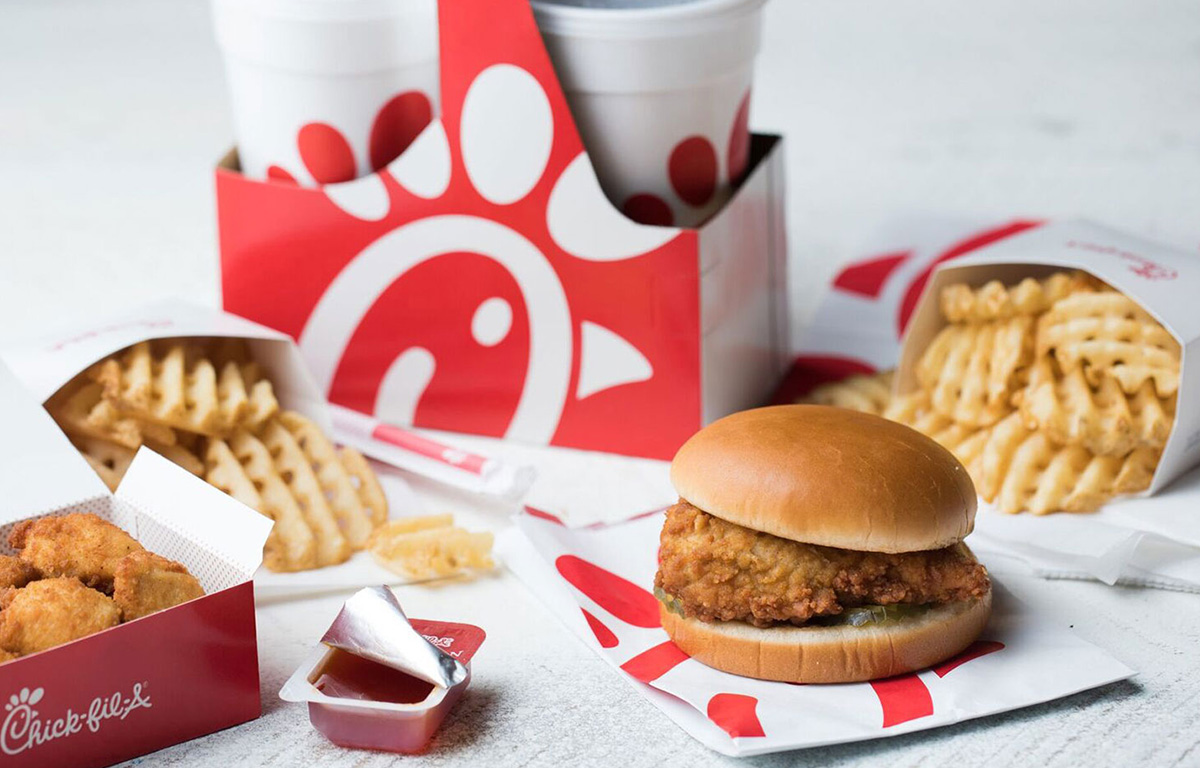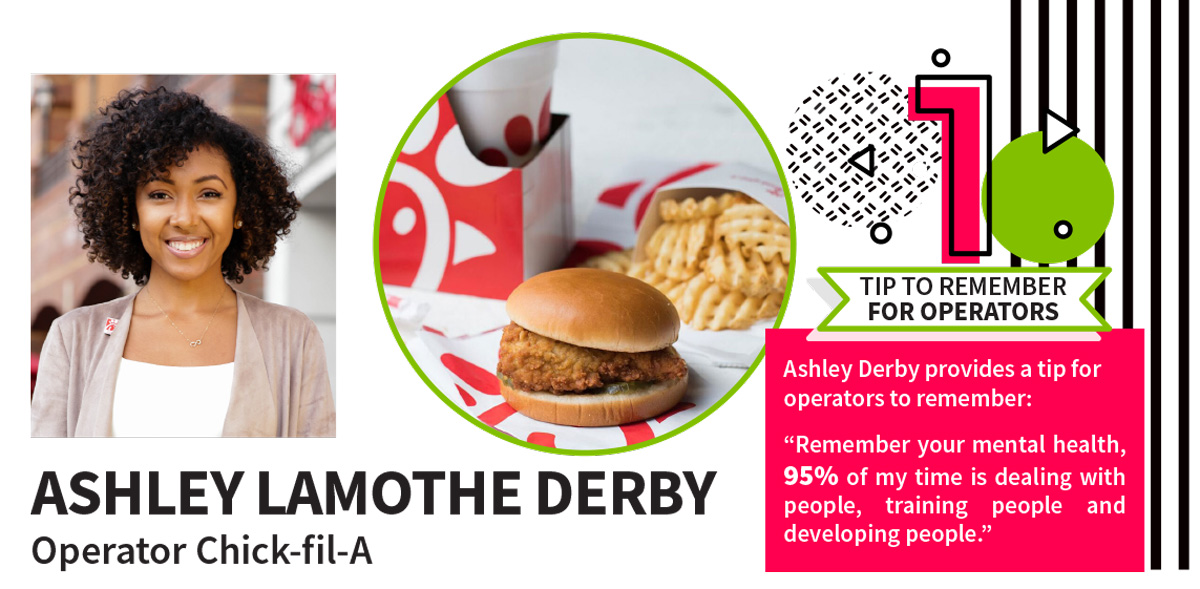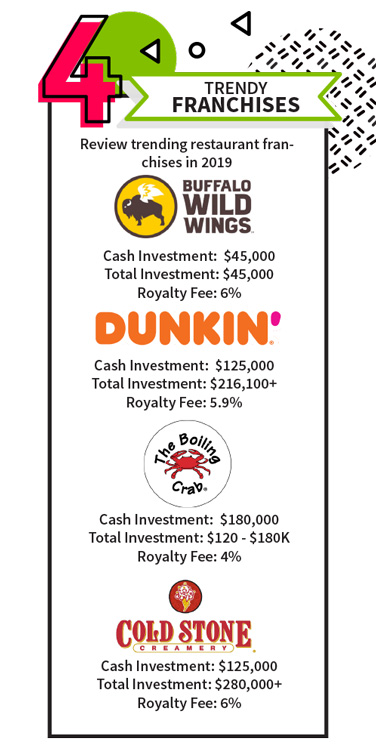
23 Apr Future Faces of Franchising: Ashley Lamothe Derby
Ask any one of these millennial franchisees and franchisors what it took to get where they are, and you’ll start to see a few trends. They all worked hard. They all did their due diligence. They all put 100% of their time, attention, and resources into building something that would leave a legacy for their families and the communities they serve. But you’ll also notice that none of their routes to success were exactly the same.
Black Restaurant Week spoke to three franchise owners — all African American, all millennials — about the paths that led them to successful franchise ownership, or, in one case, to becoming a franchisor. There’s Ashley Lamothe Derby, who brought Downtown Los Angeles its first Chick-Fil-A. There’s Vanessa Boles, who opened her second Tropical Smoothie Cafe in Texas at the end of 2018. And there’s Julian Boyd, who is bringing the Memphis chicken restaurant that his parents started 29 years ago to the national stage.
Read on to find out what led them to where they are now, what it takes to stay there, and what to know should your path lead you to the rewarding — and challenging — world of restaurant franchising.

 When Ashley Lamothe Derby first started with Chick-fil-A, she was 15 years old and trying to earn enough money to buy herself a car. She had no idea that at 26, she’d be one of the youngest franchise owners in Chick-fil-A history. But fate often intervenes, just as her store operator and mentor did when he first suggested that she consider a career in franchising.
When Ashley Lamothe Derby first started with Chick-fil-A, she was 15 years old and trying to earn enough money to buy herself a car. She had no idea that at 26, she’d be one of the youngest franchise owners in Chick-fil-A history. But fate often intervenes, just as her store operator and mentor did when he first suggested that she consider a career in franchising.
Chick-fil-A is notoriously selective about who it allows to hold franchising rights. They want dedicated leaders who bring total alignment to the company’s personal values and mission, and in return, the company pays for all startup costs, including real estate, restaurant construction, and equipment.
In addition, franchisers get the benefit of joining a well-recognized and highly reputable brand, which should make success almost inevitable. But in no way is that success guaranteed, which Derby learned shortly after opening the doors to her University of Southern California location. Despite being a household name in many cities across the country, the brand was still new to the area, with very little name recognition in the Los Angeles community.
So Derby devised a plan to get their name out there by putting food into people’s mouths. For free. She worked with local organizations and institutions to offer their catering services, had her team hit the streets with samples, and soon people were coming in on their own. Eventually the location did so well that Derby was chosen to do something that Chick-fil-A doesn’t often allow its franchisers to do — take on another location. This time in the prime hot spot of Downtown Los Angeles.
Like the others, Derby stresses the importance of researching before opening a franchise. But there’s also one other thing she thinks all potential franchisers should be aware of: the mental work that comes with maintaining the restaurant long after opening day.
“I spend 95% of my time dealing with people, training people and developing people. And with that comes a lot of different personalities, a lot of different opinions,” she said. “It’s hard mental work. And I don’t think a lot of people see it as that. Most people see it as you’re in the restaurant doing physical labor, but there’s a mental component that’s really challenging too.”

Jada F. Smith began her career in the Washington Bureau of The New York Times, where she covered a range of local, national and international news stories. Her essay for The NYT’s Sunday Review, entitled Don’t Mess With Auntie Jean, was re-published in the 12th edition of the college-level textbook, Steps to Writing Well with Additional Readings. Other work of hers has appeared on C-SPAN, TheRoot.com, The PBS NewsHour, Mic.com, LennyLetter.com, VerySmartBrothas, Nosh Culinary Magazine, Honey Magazine (defunct) and The Atlanta Post (defunct). Smith is an alumna of Howard University in Washington, D.C., where she was managing editor of The Hilltop, the daily student newspaper founded by Zora Neale Hurston.


Pingback:The Best Black-owned Hot Chicken Restaurants Outside of Nashville - Black Restaurant Week
Posted at 09:29h, 19 May[…] RELATED: Future Faces of Franchising: Ashley Lamothe Derby […]